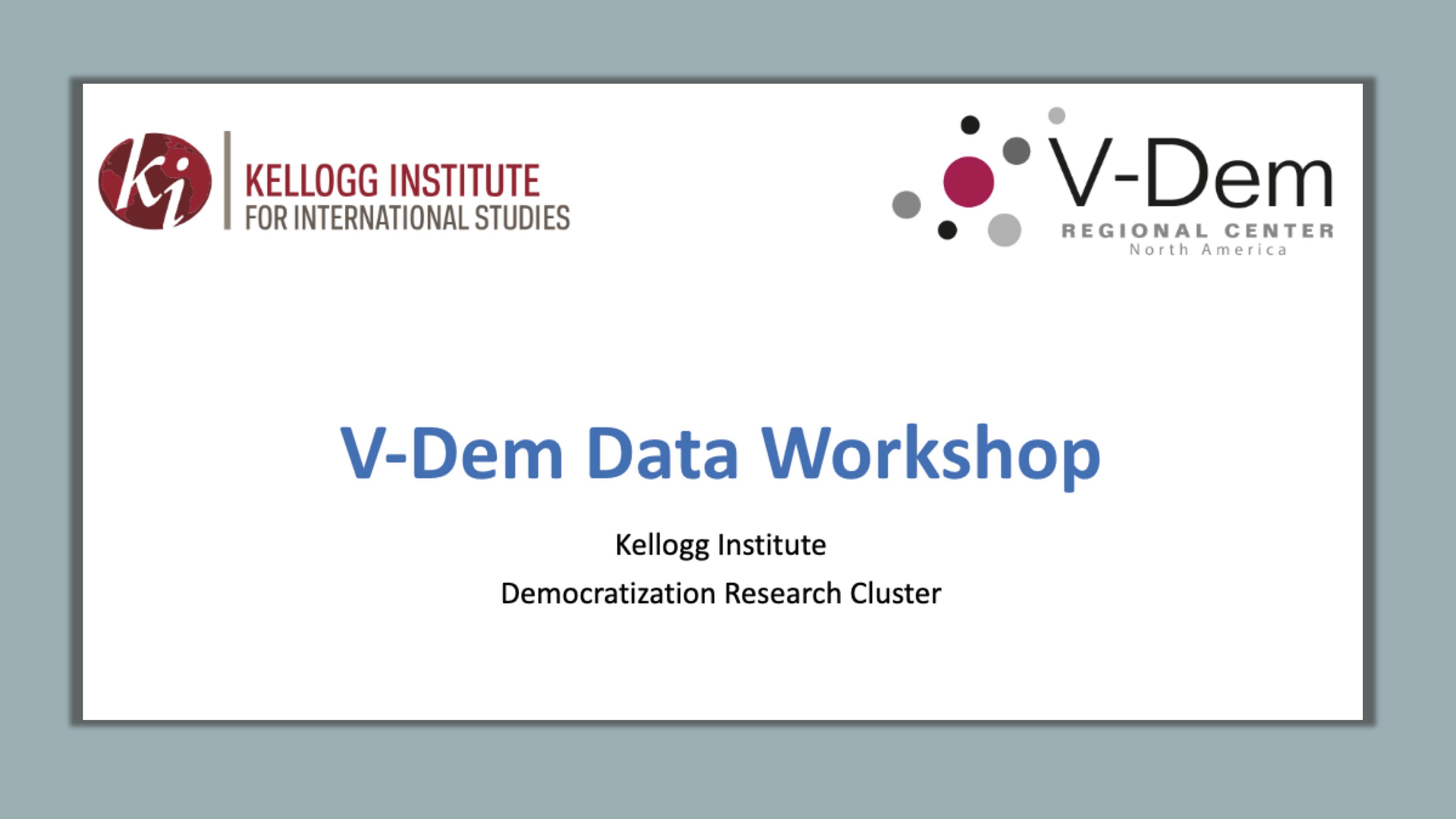Research Cluster - Democratization Theory
PI’s: Faculty Fellows Scott Mainwaring (political science), Gary Goertz (political science), Aníbal Pérez-Liñan (political science), Dianne M. Pinderhughes (Africana studies and political science), and Samuel Valenzuela (sociology).
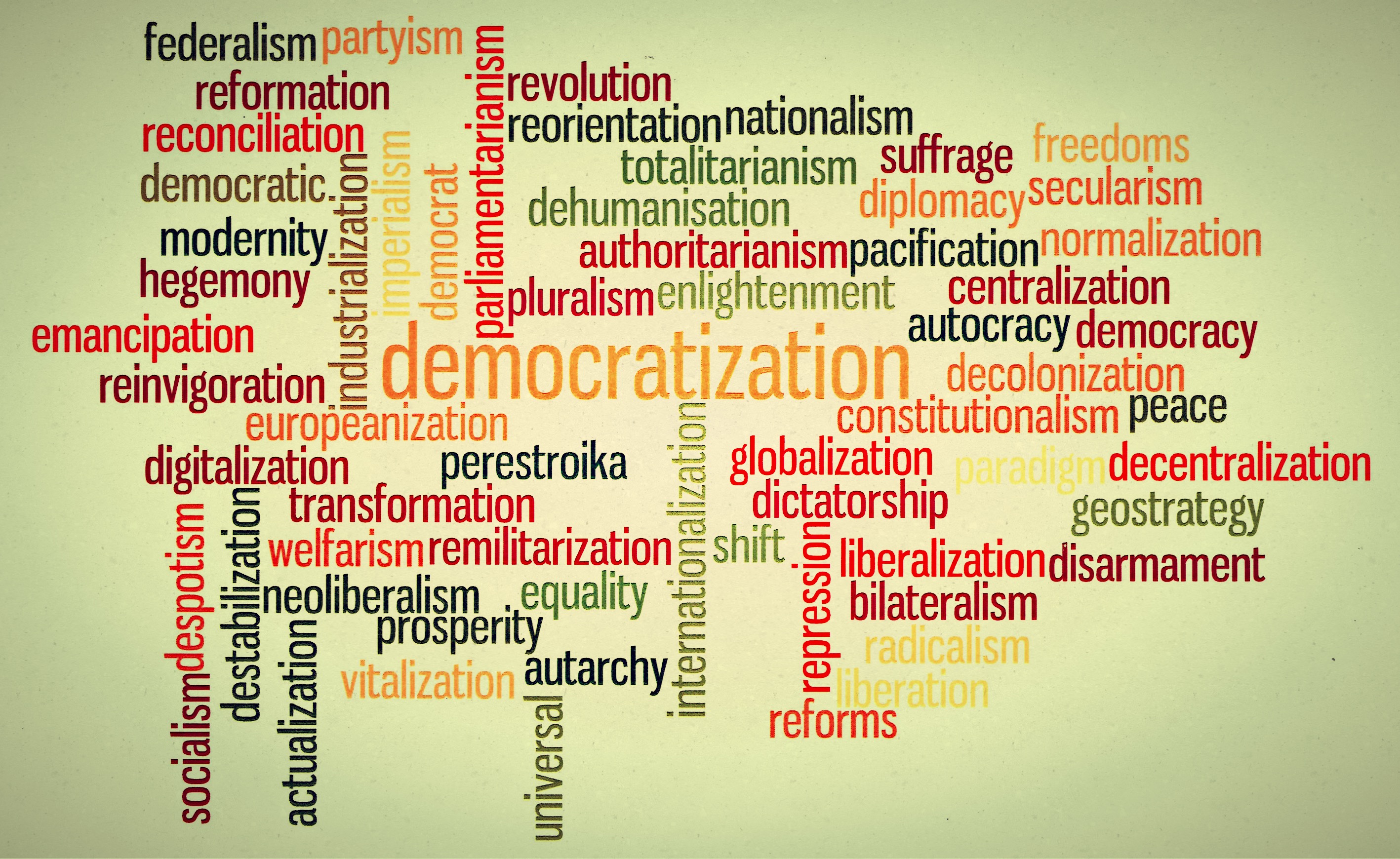 The Democratization Theory research cluster continues the Kellogg Institute's long tradition as a center for innovative thinking in democratization theory. For decades, the concepts and measures used in democratization research have fallen short of being able to adequately capture the diversity, complexity, and dynamism of political regimes. As both older and newer democracies experience democratic retrogression rather than advancement, fresh thinking is needed.
The Democratization Theory research cluster continues the Kellogg Institute's long tradition as a center for innovative thinking in democratization theory. For decades, the concepts and measures used in democratization research have fallen short of being able to adequately capture the diversity, complexity, and dynamism of political regimes. As both older and newer democracies experience democratic retrogression rather than advancement, fresh thinking is needed.
The researchers fundamentally rethink concepts relating to regimes and regime change in order to develop theories of long-term historical progression toward democracy, and regression from it, that pay more attention to neglected dimensions. Some efforts build on the Varieties of Democracy (V-Dem) conceptual scheme and data; others are complementary or completely separate. The cluster traditionally gives less emphasis to suffrage extension and the fact of elections and more attention to the role of the judiciary and constitutions, legislative strength, election administration, and human rights, among many possibilities.
The democratization theory cluster works to:
- Examine both historical and contemporary processes of democratization;
- Look at the impact of past historical trajectories on current situations;
- Focus on experiences of democratic retrogression as well as progression;
- Focus attention on neglected aspects of democracy;
- Examine and contrast specific issues by in-depth examinations of specific cases.
Expected products: More than 30 innovative papers; case studies; journal articles; one or more edited volumes
Sub-Clusters
The Democratization Theory research cluster involves seven sub-clusters dedicated to advancing research within specific sub-fields while bridging world regions and historical periods.
Sub-cluster activities include collaboration in the authorship of academic papers and journal articles in addition to the facilitation of work-in-progress sessions and reading groups. For more information on a specific sub-cluster, please contact the respective coordinators listed below.
Civil-Military Relations and Coups
Coordinator: Gary Goertz
Courts, Rule of Law, Transitional Justice, and Constitutional Best Practices
Coordinator: Ilana Rothkopf
Diffusion and Other International Influences
Coordinator: Michael Coppedge
Hybrid Regimes and Democratic Erosion
State-Building and State-Society Relations; Notions of Legitimacy
Coordinator: Luiz Vilaca
Unions, Churches, and Other Civil Society Organizations
-
Kellogg to Host Virtual Panel on Democracy and COVID-19
August 20, 2020
Events

Creative Construction: The Rise and Stall of Infrastructure in Latin America
Tuesday, February 10, 2026 @12:30 pm | Hesburgh Center Room C103
Alisha Holland, Gates Professor of Developing Societies, Harvard University
Past:
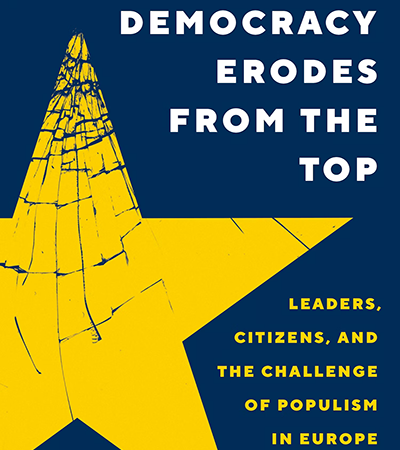
Democracy Erodes from the Top: Leaders, Citizens, and the Challenge of Populism in Europe
Tuesday, April 23, 2024 • 12:30pm - 2:00pm | Hesburgh Center C103
Larry Bartels, Professor of Political Science; Co-Director, Center for the Study of Democratic Institutions and May Werthan Shayne Chair of Public Policy and Social Science, Vanderbilt University

Lecture by Milan Svolik
Tuesday, April 30, 2024 • 12:30pm - 2:00pm | Hesburgh Center C103
Milan Svolik, Professor of Political Science, Yale University

Tuesday, March 26, 2024 • 12:30pm
All in the Family? Socialization and the Legacies of State Violence
Elizabeth Nugent, Assistant Professor of Politics, Princeton University

Tuesday, April 11, 2023 • 12:30pm
Sarah Zukerman Daly, former Kellogg Faculty Fellow and Assistant Professor of Political Science
Columbia University

Tuesday, February 21, 2023 • 12:30pm
The Puzzle of Panamanian Exceptionalism
James Loxton, former Kellogg Visiting Fellow and Senior Lecturer
University of Sydney

Tuesday, January 24, 2023 • 12:30pm
How Indigenous Identity and Recognition Shape Perceptions of Democracy and Inclusion
Michael Albertus, Professor of Political Science
University of Chicago

Tuesday, September 6, 2022 • 12:30pm
Who Governs Policing? Mayors’ Strategic Linkages to Police in Latin American Cities
Yanilda Gonzalez, Assistant Professor of Public Policy
Harvard University
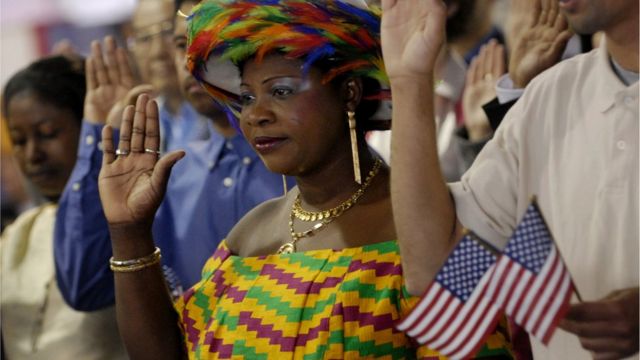
Tuesday, March 22, 2022 • 12:30pm
Mapping the Soft Power Contributions of the Nigerian Diaspora in the United States
Christopher Isike, Professor of African Politics and International Relations
Department of Political Sciences, University of Pretoria

Tuesday, April 13, 2021
State Responses to COVID in Comparative Perspective
The COVID-19 pandemic represents an unprecedented common threat to global public health and economic and political stability. But across democratic states, public policy responses to COVID-19 have varied dramatically. This panel will consider the great divergence of government responses and outcomes, examining case studies from the United States, Latin America, Asia, and Europe.

Friday, December 4, 2020
Democratization Theory Workshop
Sponsored by the Kellogg Institute's Democratization Theory Research Cluster, this workshop is a forum for the sharing and discussion of current research on democratization theory conducted across Notre Dame. Faculty and graduate students submitted papers for discussion on topics related to theories of democratization, regime change, and the quality of democracy.

Monday, August 31, 2020 • 5:30pm
Kellogg Institute Lecture Series: "Democracies in the COVID-19 Crisis" (VIRTUAL)

Thursday, September 3, 2020 • 3:30pm
Democratization Theory Research Cluster Organizational Meeting (VIRTUAL)
All faculty and graduate students are welcome. There will be a presentation of the cluster's focal research areas in which new and existing members can get involved.
Please register here.

Thursday, September 3, 2020 • 4:00pm
Work-in-Progress Seminar: Regime Trajectories in the Third Wave of Democratization (VIRTUAL)
For the pre-circulated paper and to attend, please register.
Scott Mainwaring, Eugene P. and Helen Conley Professor of Political Science; Democratization Cluster PI
Aníbal Pérez-Liñán, Professor of Political Science and Global Affairs; Democratization Cluster PI

Wednesday, September 16, 2020 • 11:00am
Subcluster Meeting: Courts and Rule of Law (VIRTUAL)
For more information and to participate, please contact the subcluster coordinator Diana Isabel Guiza-Gomez. dguizago@nd.edu
Sponsored by the Democratization Theory Research Cluster
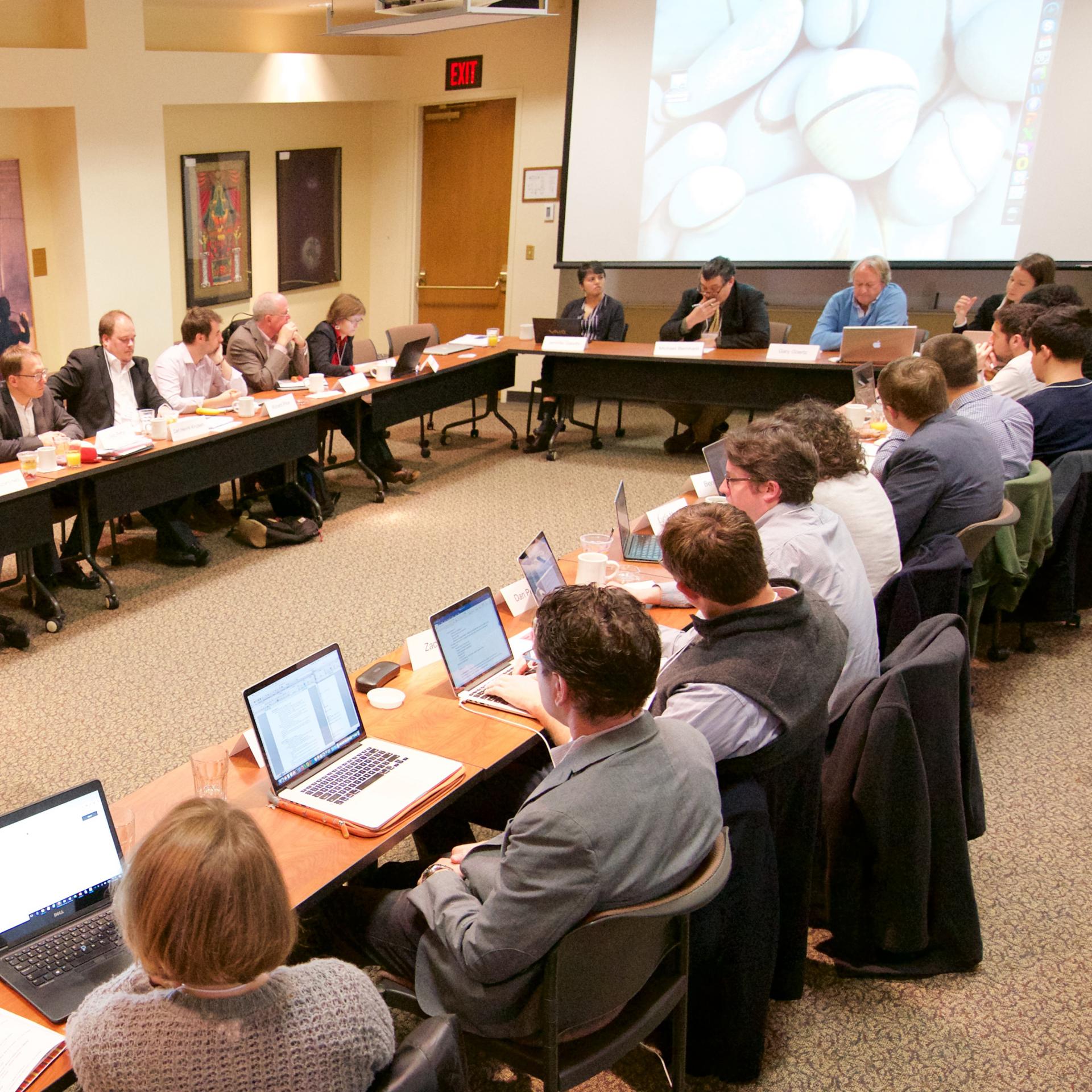
Friday, November 1, 2019
Democratization Theory Research Cluster Workshop
Workshop Organizers: Faculty Fellows Michael Coppedge (political science), Gary Goertz (political science), Aníbal Pérez-Liñan (political science), Dianne M. Pinderhughes (Africana studies and political science), and Samuel Valenzuela (sociology).
WORKING PAPERS
June 2020
Authors: Steven E. Finkel, Aníbal Pérez-Liñán, Michael Neureiter, Chris A. Belasco
Title: Effects of US Foreign Assistance on Democracy Building, 1990–2014: An Update
December 2019
Author: Andreas Schedler
Title: Tyrannies of Majorities: A Conceptual Reassessment
BOOKS
Michael Coppedge,* John Gerring, Adam Glynn, Carl Henrik Knutsen, Staffan I. Lindberg, Daniel Pemstein, Brigitte Seim, Svend-Erik Skaaning, and Jan Teorell, with David Altman, Michael Bernhard, Fernando Bizzarro Neto , Joshua Krusell, Kelly McMann, Matthew Maguire, Kyle Marquardt, Valeriya Mechkova, Farhad Miri, Josefine Pernes, Jeffrey Staton, Natalia Stepanova, Eitan Tzelgov, and Yi-ting Wang, Varieties of Democracy: Measuring Two Centuries of Political Change. (Cambridge University Press, January 2020.)
Pérez-Liñán, Aníbal. 2018. ¿Puede sobrevivir nuestra democracia? Liderazgo y agencia política en América Latina. [Can Democracy Survive? Leadership and Political Agency in Latin America]. México: Instituto Nacional Electoral.
ARTICLES
Pérez-Liñán, Aníbal, Nicolás Schmidt, and Daniela Vairo. 2019. “Presidential Hegemony and Democratic Backsliding in Latin America, 1925-2016.” Democratization 26 (4): 606-625.
Kelly M. McMann, Matthew Maguire, John Gerring, Michael Coppedge, and Staffan I. Lindberg, “Explaining Subnational Regime Variation: Country-Level Factors.” Comparative Politics, forthcoming 2020.
Staffan I. Lindberg, Michael Coppedge, John Gerring, Carl Henrik Knutsen, Joshua Krusell, Kyle L. Marquardt, Juraj Medzihorsky, Josefine Pernes, Natalia Stepanova, Svend-Erik Skaaning, Jan Teorell, Daniel Pemstein, Eitan Tzelgov, Yi-ting Wang, and Steven L. Wilson, “The Methodology of ‘Varieties of Democracy’ (V-Dem),” Bulletin de Méthodologie Sociologique 143: 107-133 (2019).
Michael Coppedge, Guest Editor (with David Kuehn, Aurel Croissant, and Jeff Haynes) of Democratization 26:1 (25th Anniversary special issue) on "Methodology and Knowledge Accumulation in Democratization Studies," 2019.
Michael Coppedge and David Kuehn, “Introduction: Absorbing the Four Methodological Disruptions in Democratization Research?” Democratization (25th Anniversary Special Issue) 26:1 (2019): 1-20.
Jan Teorell, Michael Coppedge, Staffan I. Lindberg, and Svend-Erik Skaaning, "Measuring Polyarchy across the Globe, 1900-2016.” Studies in Comparative International Development, 54 (2019): 71-95.
Carl Henrik Knutsen, John Gerring, Svend-Erik Skaaning, Jan Teorell, Matthew Maguire, Michael Coppedge and Staffan I. Lindberg, “Economic Development and Democracy: An Electoral Connection,” European Journal of Political Research, 58:1 (February 2019): 292-314.
Dianne Pinderhughes, “The Sesquicentennial of African American Political Participation and the 2020 Presidential Election.” 2020 African American Booklist, Detroit Public Library, 2020.
BOOK CHAPTERS
García Holgado, Benjamín, and Aníbal Pérez-Liñán. 2021. “The Weaknesses of Illiberal Regimes,” forthcoming in the Routledge Handbook of Illiberalism, edited by András Sajó, Stephen Holmes and Renáta Uitz.
J. Samuel Valenzuela, Nicolás Somma, and Timothy R. Scully, "Resilience and Change: The Party System in Redemocratized Chile," in Scott Mainwaring, ed., Party Systems in Latin America: Institutionalization, Decay, and Collapse. New York: Cambridge University Press, 2018, pp. 135-163.






